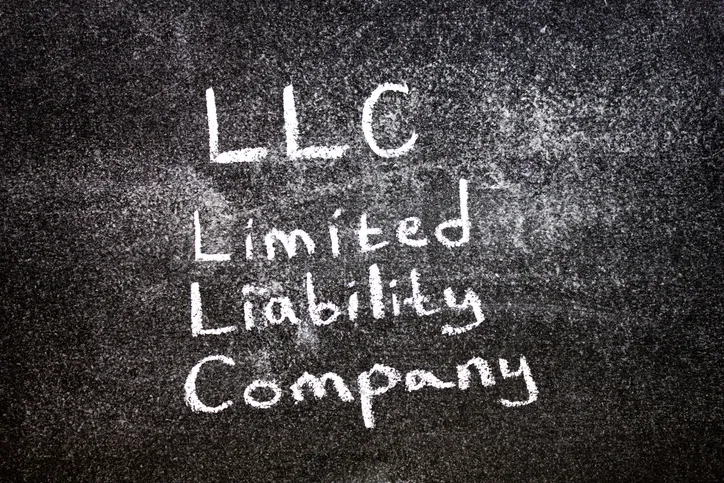When structuring your assets and business interests, understanding the relationship between different legal entities becomes crucial. One question that often arises is whether a trust can own an LLC. The short answer is yes—a trust can indeed own an LLC. This ownership arrangement can offer enhanced privacy, simplify succession planning, and add layers of legal protection for your assets.
A financial advisor can help you manage your assets and plan around your business. Find an advisor today.
Can a Trust Be a Sole Member of an LLC?
Yes, both revocable and irrevocable trusts can own an LLC, but the implications differ depending on the trust structure. In either case, the trust becomes the legal owner of the LLC, and the trustee manages the ownership interest on behalf of the trust’s beneficiaries. This arrangement can provide estate planning advantages, tax efficiencies and liability protection when set up correctly.
Proper documentation is key for either setup. The trust agreement must authorize the trustee to hold business interests, and the LLC’s operating agreement should identify the trust as a member. State-specific rules may apply, so working with legal and tax professionals is strongly recommended.
Revocable Trusts
A revocable trust, often used for personal estate planning, allows the grantor to retain control over the trust and its assets during their lifetime. If a revocable trust is the sole member of an LLC, the IRS typically treats the LLC as a disregarded entity, meaning its income passes through directly to the grantor’s personal tax return.
Irrevocable Trusts
An irrevocable trust, by contrast, removes assets from the grantor’s estate and limits control after creation. When an irrevocable trust owns an LLC, the tax treatment becomes more complex. Income may be taxed at the trust level or passed to beneficiaries, depending on the trust’s terms and how distributions are handled.
Should a Trust Own Your LLC?

When considering whether a trust should own your LLC, it’s important to evaluate your specific financial situation and long-term goals. A trust-owned LLC can provide significant asset protection benefits by creating multiple layers of legal separation between your assets and potential creditors. This structure may also offer enhanced privacy since the trust, rather than you, appears as the owner in public records.
The right structure depends on your wealth protection needs, estate planning goals and business objectives. Financial advisors and attorneys who specialize in business structures and estate planning can help you determine if this setup aligns with your financial strategy and situation.
Benefits of a Trust Owning Your LLC
Trust ownership of an LLC can streamline estate planning and potentially avoid probate proceedings. Placing your LLC interests in a trust allows you to transfer them to beneficiaries based on trust terms, avoiding court involvement. This may save your heirs significant time and expense while providing continuity in business operations during the transition period after your passing.
The tax implications of having a trust own your LLC depend on the type of trust you establish. The IRS generally treats revocable trusts as pass-through entities, so they don’t change how your LLC is taxed. However, irrevocable trusts that own LLCs may create different tax scenarios, which are important to evaluate before implementation.
Drawbacks of a Trust Owning Your LLC
Despite the advantages, trust ownership of an LLC isn’t right for everyone. The setup requires careful planning and potentially significant legal costs to establish and maintain properly. Additionally, certain types of trusts may limit your control over the LLC’s operations or assets. This may pose a problem if you need flexibility in your business decisions.
How to Own an LLC Through a Trust
Setting up a trust as an LLC owner involves several important steps. You’ll want to follow them carefully to ensure legal compliance and achieve your financial goals.
Start by creating a trust document that defines the trust’s purpose, beneficiaries and powers related to business ownership.
You’ll need to determine which type of trust best suits your needs. Revocable living trusts offer flexibility and control during your lifetime. Meanwhile, irrevocable trusts provide stronger asset protection and potential tax benefits. Choose the option that fits your estate planning goals and the level of control you want over the LLC.
Work with an experienced estate planning attorney to draft comprehensive trust documents. The documents should explicitly grant the trust authority to own business interests and describe how the LLC will be managed. The trust document should name trustees who will manage the LLC ownership interest on behalf of the beneficiaries.
After creating the trust, formally transfer the LLC ownership to it. You typically need to amend the LLC’s operating agreement to list the trust as a member and file documents with your state. The operating agreement should clearly define the trust’s voting rights and management participation.
When a trust owns an LLC, tax reporting becomes more complex. Depending on the trust type and LLC structure, you may need to file additional tax forms. A tax professional can ensure proper reporting of income flowing from the LLC to the trust and ultimately to beneficiaries.
Bottom Line

Whether you’re considering a revocable living trust for lifetime control or an irrevocable trust for maximum asset protection, the trust-owned LLC model deserves consideration. Proper implementation requires thoughtful planning with qualified legal and tax professionals who understand your specific circumstances and goals. Not only will this help ensure compliance with state laws, it will allow you to maximize the arrangement’s benefits. With proper guidance, a trust-owned LLC can become a cornerstone of your comprehensive wealth management strategy.
Business Planning Tips
- A financial advisor with asset protection experience may be able to help you shield your assets from creditors and other risks. Finding a financial advisor doesn’t have to be hard. SmartAsset’s free tool matches you with vetted financial advisors who serve your area, and you can have a free introductory call with your advisor matches to decide which one you feel is right for you. If you’re ready to find an advisor who can help you achieve your financial goals, get started now.
- Whether you intend to sell, transfer to family or wind down, build a succession plan that outlines how ownership and management will change hands. This can help preserve business value and reduce disruption.
Photo credit: ©iStock.com/bin kontan, ©iStock.com/simpson33, ©iStock.com/designer491
